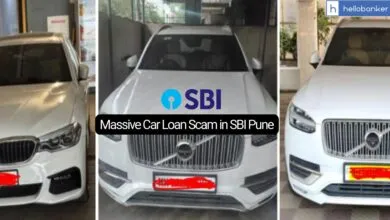Massive Fraud: Rs.50,000 crore sent to China via hawala, ED investigates Indian companies

| Get instant news updates: Click here to join our Whatsapp Group |
The Enforcement Directorate (ED) has intensified its investigation into allegations of money laundering by companies importing goods from China, sources have revealed to Business Today TV. Several Indian firms are suspected of under-invoicing luxury items such as furniture and gadgets to evade taxes on these imports. Officials claim that these companies have been paying a reduced amount for the imported goods on record, while funneling the remaining payment to Chinese sellers through illegal hawala networks. This practice not only helps the firms avoid taxes but also violates financial regulations.
In response, the Ministry of Finance, External Affairs, and Home Affairs have joined forces with the ED to address the issue. According to officials, over the past six months, Indian firms have allegedly siphoned off Rs 50,000 crore to Chinese sellers using this under-invoicing tactic, breaching anti-money laundering and foreign exchange laws.
The ED has launched a formal investigation under the Prevention of Money Laundering Act (PMLA) to trace how these funds are rerouted to China. The agency is also looking into the possible use of cryptocurrencies in these transactions, as many payments are believed to be made using digital currencies. This crackdown is part of a larger government initiative to curb illegal financial flows and safeguard India’s economic security. The ED’s investigation is expected to expand as they track the misuse of funds and further scrutinize financial dealings linked to Chinese imports.
The ED has estimated that over the past six months, around Rs 50,000 crore have been funneled to Chinese sellers through under-invoicing and illegal payment mechanisms. This has resulted in a massive loss in tax revenue for the Indian government, including unpaid customs duties, GST, and other import-related taxes. This figure could be even higher if the practice has been ongoing for several years.
The losses from these activities undermine the government’s efforts to raise revenue, which is essential for funding public services, infrastructure development, social welfare programs, and healthcare systems. When large amounts of money are siphoned off through tax evasion, it forces the government to either reduce spending on these crucial areas or increase taxes on law-abiding citizens and businesses.
How the Under-Invoicing Fraud Works:
- Under-Invoicing of Goods: Indian firms import luxury goods such as furniture, electronics, and gadgets from China. On paper, these goods are declared at prices much lower than their actual value. For example, an item worth Rs 1 crore may be invoiced at only Rs 50 lakh.
- Tax Evasion: Since customs duties, Goods and Services Tax (GST), and other levies are calculated based on the declared value of the goods, under-invoicing allows these companies to pay significantly lower taxes. This results in a direct loss of revenue for the government. For example, if a luxury good is declared at half its value, the company would pay only half of the customs duties and GST, depriving the government of critical tax income.
- Illegal Payments via Hawala: The remaining payment, which is the difference between the declared price and the actual price, is funneled through informal channels such as hawala networks. These illegal networks allow the firms to transfer the remaining funds without going through official banking systems, further evading taxes and violating foreign exchange regulations.
- Crypto Payments: As part of their investigation, the ED suspects that some of these payments are being made via cryptocurrencies, which offer anonymity and are harder to trace. This adds another layer of complexity to the fraud and raises concerns about the use of digital currencies for illegal financial transactions.
